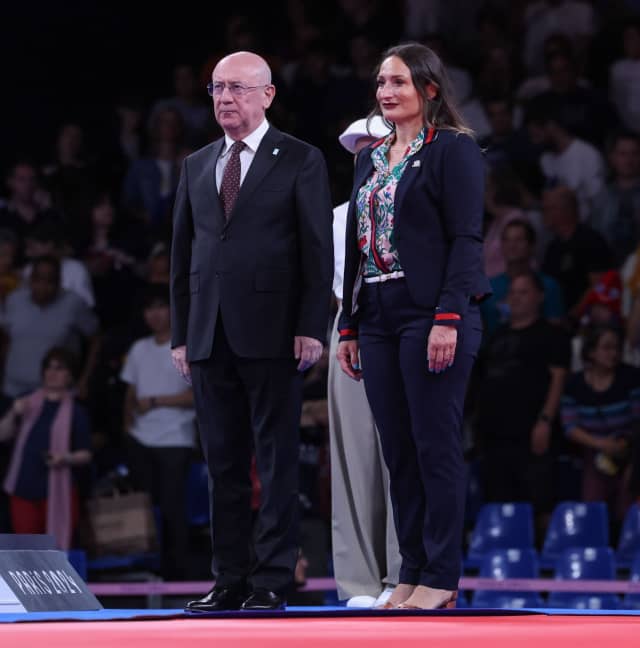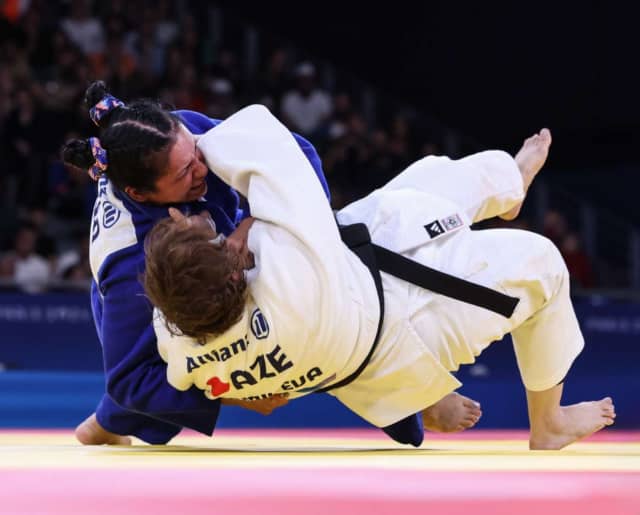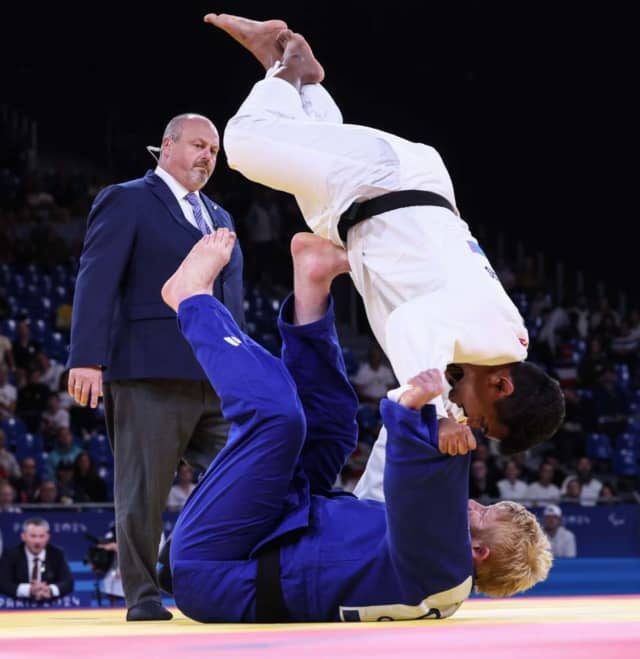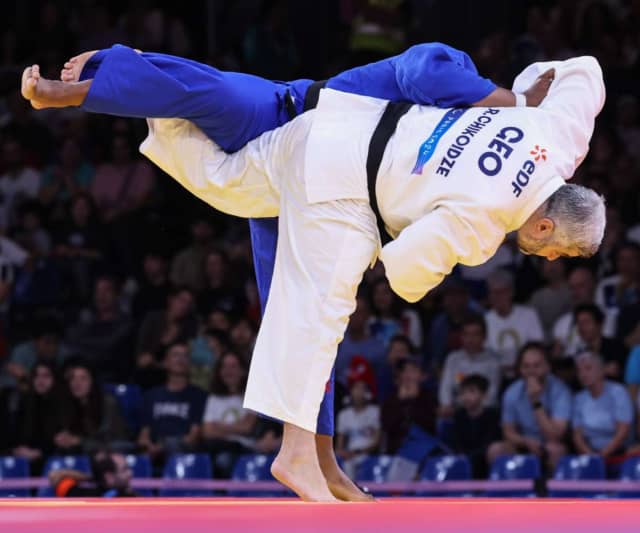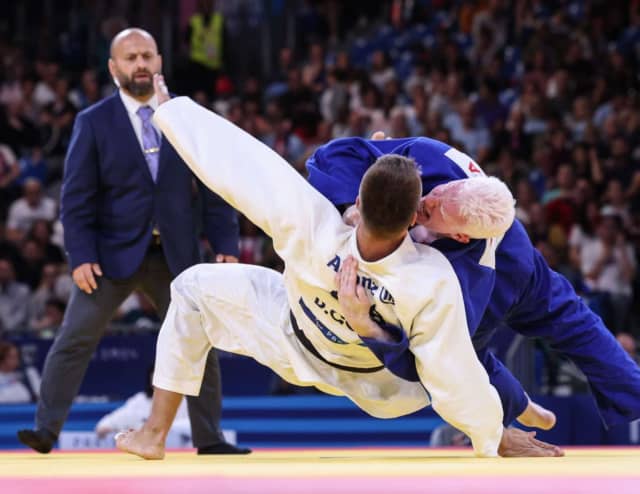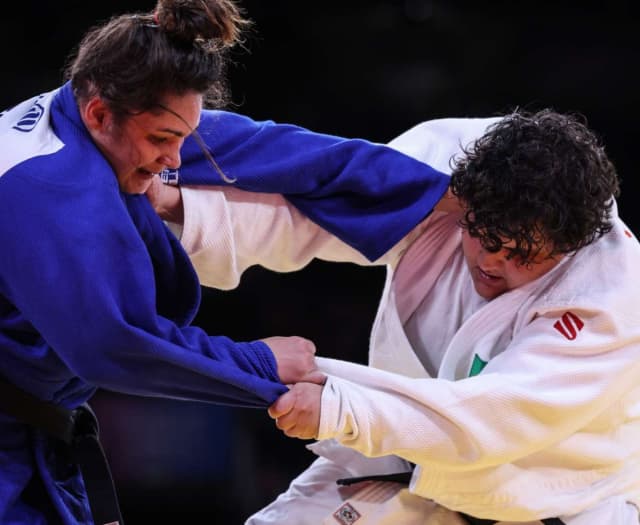"The Paralympic Games Paris 2024 brought us a great judo show. Not only because of the enthusiastic crowds and the emotional component of a competition for people with disabilities. It was a great judo competition, that's all.
There are hardly any differences between Olympic and Paralympic judo rules. Believe it or not, the rule when judoka reach the edge of the tatami is the same. Referees are more flexible but warned that most athletes, even the totally blind J1 judoka, are able to count the steps and position themselves in the centre of the mat. If athletes leave the competition area voluntarily, they will be penalised with a shido.
The only major difference is in the grip. Both opponents must adopt basic kumi-kata at the start of the contest and after each ‘mate.’ This has several consequences. First of all, spectacular judo arrives much earlier in para-judo, as both athletes are already prepared, immediately after ‘hajime,’ to apply their techniques. There are therefore many fast ippon throws, which the dedicated audience in Paris was very grateful for. Another consequence is that the athletes have to endure more muscular tension to resist their opponent's grip every second of the fight. This results in a much smaller number of contests ending in golden score. When they do occur, they are almost always exciting because they involve two athletes in an epic struggle.
The audience of Paris loves good judo and was able to recognise and enjoy it during the Paralympics, cheering and applauding the athletes of all countries. For me it was also one of the most vibrant and exciting competitions I have ever experienced.
Personally, I find one thing very surprising: most of the judoka maintain the ‘fighting character’ of their national team that we judo lovers know very well. The Japanese are extremely technical and respectful. In the French team you can find athletes who know how to make the most of tactics. The Georgians are great fighters who never give up. The Brazilian team have a great balance between technique and fitness; does this sound familiar to you? This is the case even in teams where disabled and non-disabled athletes train separately. This gives me food for thought about which comes first, the judo school or the positive differences? I don't think I'll ever find out, but I love that my sport is home to champions with such diversity.
People attending a para-judo competition for the first time are often very surprised by the technical proficiency of the J1 athletes, who are totally blind. They and their coaches carry out exhaustive and methodical training and have arrived in Paris in top form, just like any other athlete preparing for the Games. However, despite knowing this, it seems like magic how these athletes feel judo and are able to apply the right technique at the right moment. On the mat we saw all kinds of judo techniques. These athletes are not limited in that. However, they are specialists in techniques in which displacements and imbalances can be shorter, such as seoi techniques or sutemi-waza.
In the case of J2 athletes with severe visual impairment, there is no difference in technical preferences between Olympic and Paralympic athletes. Most of them have such a high level of physical, technical and tactical preparation that it is almost possible to forget that they have a disability. Some might think that if these athletes are able to see their opponent's forms ,they are not at a great disadvantage in judo, where feeling is so important. This is a mistake! These athletes overcome great barriers every day when it comes to learning a new technique in the dojo, when they have to travel to their training sessions or even when they have to combine their sport and academic preparation. It is necessary to understand all this in order to appreciate their merit and their excellence.
For all these athletes, their teams, the audience and for all of us, the judo competition at the Paralympic Games Paris 2024 was an unforgettable experience. I am very grateful to the IJF, the IBSA judo staff, the organisers of Paris 2024, the volunteers, the officials of the French Judo Federation and, above all, to the athletes and coaches for making it possible."
It is certain that there will be a before and after the Games. In Paris, para-judo reached a new level, showing that judo is united around its values and principles no matter the physical starting point of the judoka. The public as well as all the experts like Sara Alvarez understood it and enjoyed it, through every single second of the event.

